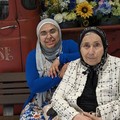Women’s Health Research & Innovation Scholarship
There has long been underinvestment in scientific research and technological innovation tailored specifically to women’s health. Traditional studies have frequently prioritized male subjects, in part due to the complexity introduced by hormonal fluctuations—leading to critical gaps in our understanding. As a result, many women endure unnecessary discomfort, delays in accurate diagnoses and effective treatments, as well as various other unmet health-related needs. Meanwhile, the burgeoning FemTech field is attracting investment and offering opportunities for those aspiring to deliver impactful, life-improving innovations in this space.
The Women’s Health Research & Innovation Scholarship aims to shift this paradigm by supporting passionate undergraduate and graduate students committed to advancing research, medicine, and product development in support of women's health. Whether your focus is fundamental research on hormone cycles, the design of medical tests or devices, or the creation of consumer-facing solutions that empower women to understand and manage their health, this scholarship is here to support your pursuit of this work. Our goal is to invest in forward-thinking scientists, practitioners and innovators dedicated to addressing real health challenges faced by women throughout various stages of life—from birth to menstruation to menopause and beyond.
We believe that with the right resources, your research, new tests, treatments, and product ideas can help close critical knowledge gaps, transform healthcare practices, and improve well-being for women--and everyone--around the world.
To apply, tell us what inspired you to pursue a career in women’s health and how you hope to make a difference through your work. Additionally, please feel free to upload an example of a project, product, work, or research you’ve executed in women’s health and/or links to your research, linkedin profile, or other supplemental information/portfolio.
Selection Criteria:
Demonstrated Passion – A clear commitment to advancing women’s health, reflected in personal stories, experiences, or projects.
Potential for Impact – Compelling vision for how your research, product ideas, or future endeavors could benefit women’s health on a larger scale, whether that’s through innovative devices, consumer products, medical/mental healthcare practice or foundational research.
What inspires you to pursue a career in women's health, personally and/or professionally? How do you hope to contribute to this field through your current or future work? Please be specific, and include links to any published research, personal websites or other materials that help demonstrate your work or passion in this area.
Winners and Finalists
August 2025












Winning Application

Explore All Kinds of Scholarships for All Kinds of Students
FAQ
The application deadline is Aug 1, 2025. Winners will be announced on Aug 30, 2025.
Your privacy is a top priority on the Bold.org platform, and you can find our privacy policy in full here. You may opt out of communications from Bold.org at any time, and unless we’ve first notified you and gotten your consent, you’ll never receive communication from any third parties related to personal information you give us.
Award amounts per winner are designated by the donor. Check the award amount for a detailed breakdown.
The winner will be publicly announced on Aug 30, 2025. Prior to the announcement date, we may contact finalists with additional questions about their application. We will work with donors to review all applications according to the scholarship criteria. Winners will be chosen based on the merit of their application.
Award checks will be sent to the financial aid office of the winner's academic institution in their name to be applied to their tuition, and in the name of their institution (depending on the school's requirements). If the award is for a qualified educational non-tuition expense, we will work with the winner directly to distribute the award and make sure it goes towards qualified expenses.
Before we award the scholarship, the winner will be required to confirm their academic enrollment status. Depending on the circumstances, verification of Student ID and/or their most recent transcript will be required.
If you have any questions about this scholarship or the Bold.org platform, just email contact@bold.org and we’ll get back to you as quickly as we can.
Yes. The terms and conditions for this scholarship can be found here.